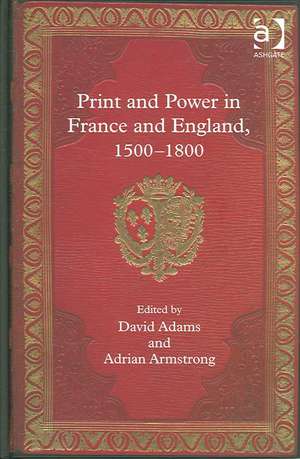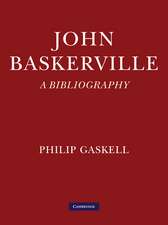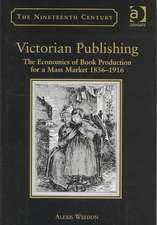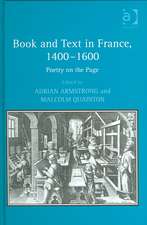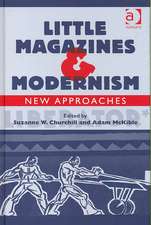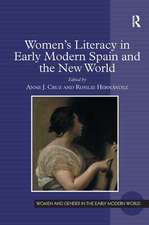Print and Power in France and England, 1500-1800
Autor Adrian Armstrong Editat de David Adamsen Limba Engleză Hardback – 28 sep 2006
Preț: 820.21 lei
Preț vechi: 1102.94 lei
-26% Nou
Puncte Express: 1230
Preț estimativ în valută:
157.04€ • 161.09$ • 132.22£
157.04€ • 161.09$ • 132.22£
Carte tipărită la comandă
Livrare economică 26 februarie-12 martie
Preluare comenzi: 021 569.72.76
Specificații
ISBN-13: 9780754655916
ISBN-10: 0754655911
Pagini: 168
Dimensiuni: 156 x 234 x 13 mm
Greutate: 0.47 kg
Ediția:1
Editura: Taylor & Francis
Colecția Routledge
Locul publicării:Oxford, United Kingdom
ISBN-10: 0754655911
Pagini: 168
Dimensiuni: 156 x 234 x 13 mm
Greutate: 0.47 kg
Ediția:1
Editura: Taylor & Francis
Colecția Routledge
Locul publicării:Oxford, United Kingdom
Cuprins
Contents: Introduction; Cosmetic surgery on Gaul: the printed reception of Burgundian writing in France before 1550, Adrian Armstrong; Immanuel Tremellius' Latin bible (1575-79) as a pillar of the Calvinist faith, Kenneth Austin; 'It was not mine intent to prostitute my muse in English': academic publication in early modern England, Sarah Knight; 'Charity', social control, and the history of English literary criticism, Lee Morrissey; Spreading the word: illustrated books as political propaganda in 17th-century France, Alison Saunders; Insinuation and instruction: public opinion in 18th-century 'letters to the printer', Ann C. Dean; Police and political pamphleteering in pre-revolutionary France: the testimony of J.-P. Lenoir, Lieutenant-Général of Police of Paris, Simon Burrows; Fancy costume and political authority in the French revolution, David Adams; Bibliography of works cited; Index.
Recenzii
’Adams and Armstrong's Introduction provides a useful and even-handed survey of the theoretical and historical terrain of the terms 'power' and 'discourse'...a successful comparative volume.’ Forum for Modern Language Studies ’In an intellectual climate where the benefits of interdisciplinary study are so frequently lauded, this contribution is an extremely successful example of that enterprise... Overall, this volume is a valuable and interesting contribution to our nderstanding of diverse aspects of the relationship between the printed word and power in early modern France and England.’ Modern Language Review
Notă biografică
David Adams is Professor of French Enlightenment Studies and Adrian Armstrong is Professor of French, both at the University of Manchester, UK.
Descriere
What was the relationship between power and the public sphere in early modern society? How did the printed media inform this relationship? Contributors to this volume address those questions by examining the interaction of print and power in France and England during the 'hand-press period'. The central themes covered in this volume include reading and control; propaganda and its (re-)uses; the Academy; and clientism and faction.
